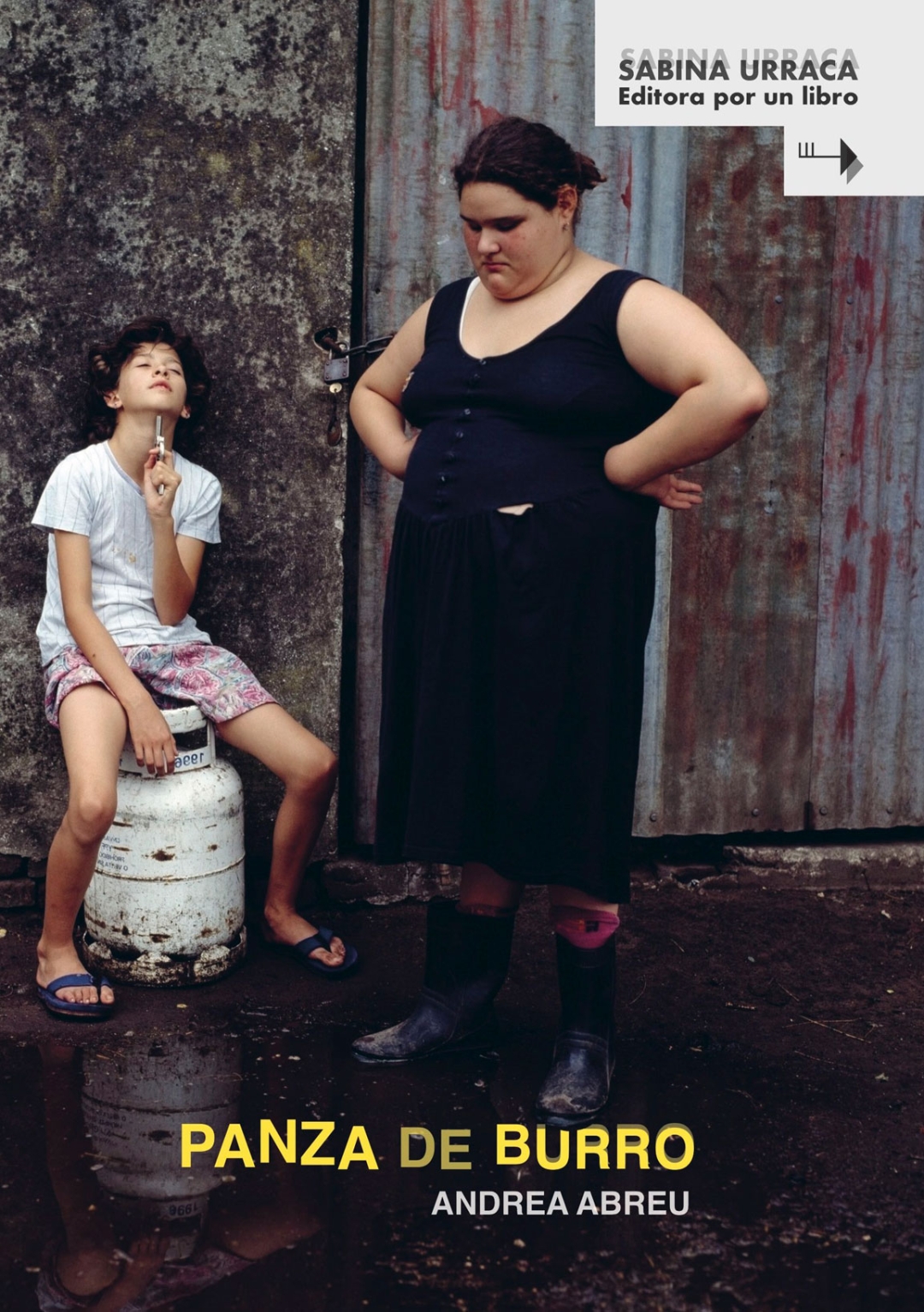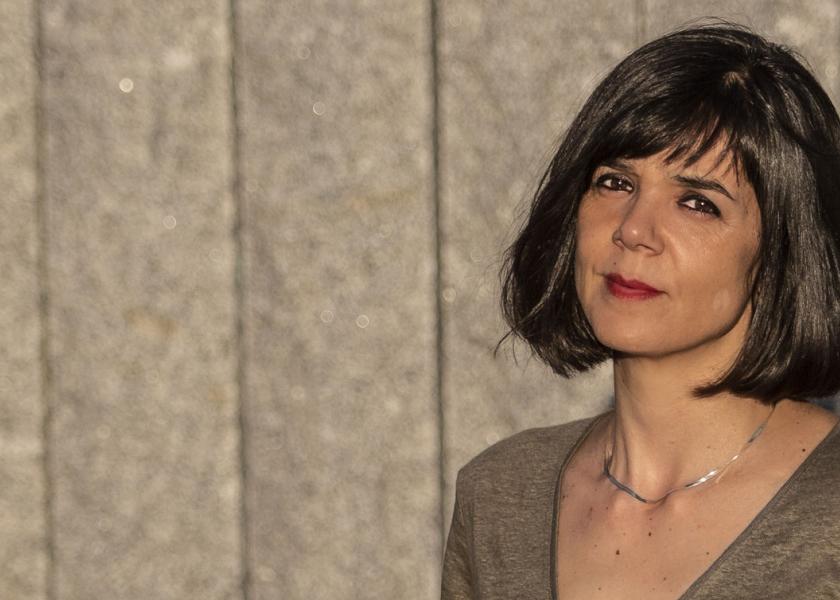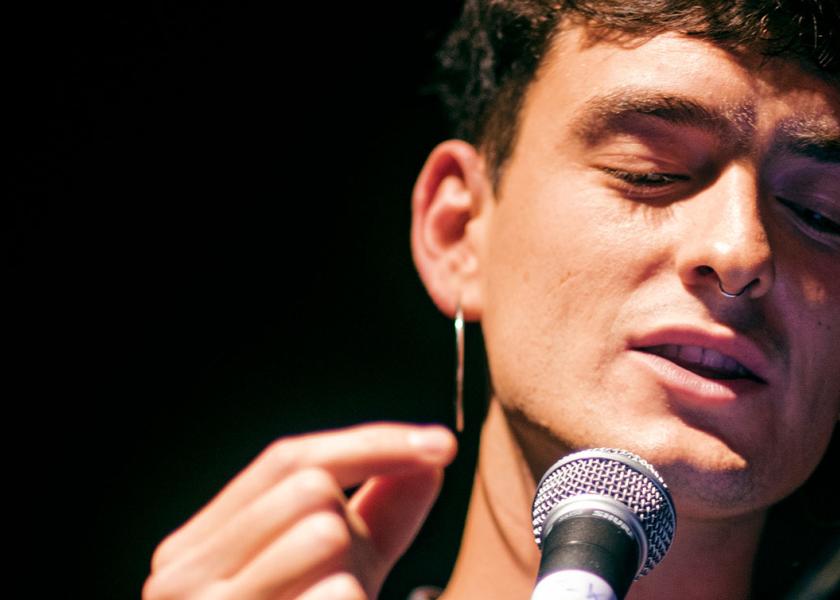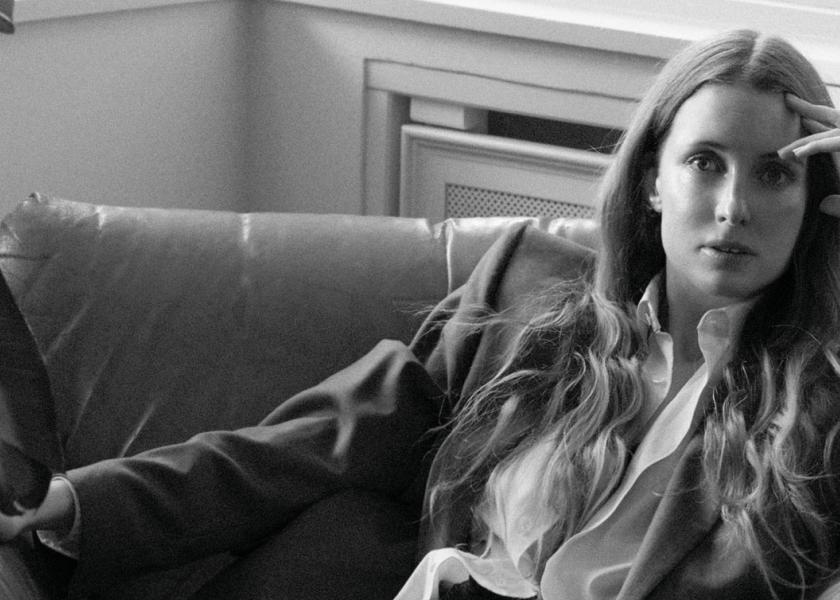Andrea Abreu
The language revolution

‘Dogs of Summer’, the novel that took the Spanish book market by storm in 2020, is full of Spanish expressions typical of the Canary Islands (esperruñar, alpispa, macaneo, estregarse, jarrapa), free from italics and inverted commas. Its young author, Andrea Abreu from Tenerife, who’ll receive the 2023 Festival Eñe Talento a bordo Award, continues to defend her right to play with language and literature.
Dogs of Summer the novel came out in April of 2020, and became an overnight sensation. And it did so despite being written by an insultingly young girl, Andrea Abreu (Icod de los Vinos, 1995), being published by a small publishing house (Barrett) and including many “counter-urban punk slang” expressions typical of the Canary Islands, unknown to many readers, as the author herself describes it. An anomaly on the book market. More than three years after that bombshell, we feel obliged to ask Andrea about her highly anticipated second novel. “I’m also looking forward to it —she laughs without dodging the question—. It’s a more ambitious project that will continue to delve into the language and land of the Canary Islands. It’s not that far removed from my first novel, but it’s not a sequel to Dogs of Summer; I’m warning you just in case that’s what people are expecting.” On the 28th of October, Andrea will receive the 2023 Festival Eñe Talento a bordo Award, which seeks to recognise emerging literary talent. “I feel really grateful because I never thought I’d receive any kind of recognition, so each time I do I feel choked up,” she shares.
More than three years after the success of Dogs of Summer, how has this reaction been?
What happened to me is unusual and the process has been complicated. I have to admit that I haven’t known how to deal with the situation well, but processing such a radical change isn’t easy. I’ve never had such a calming outlook on the future; I’d always had really precarious jobs, as a waitress or shop assistant, and I had no higher ambitions. I realised that working in the industry I wanted, which was journalism more than literature, was really difficult. So, I feel really grateful for everything that’s happened with the book.
After publishing Dogs of Summer, you left Madrid and returned to Tenerife. To a stranger, that might seem like a risky decision.
I’m increasingly leaning towards a worldview that slows down production rates. Although literature may seem harmless, it’s also part of that hamster wheel and I’m not in favour of that capitalist pace. I believe that when we’re in the whirlwind of the big city, we easily get sucked in by this. It happened to me. Now I’m out of that loop and I want to be true to my ideas.
“The most sustainable act is to become attached to an environment, know its culture and create community. Feeling uprooted is damaging to sustainability”
We live in a globalised world that tends towards uniformity. Paradoxically, works like Dogs of Summer, which focus on the local perspective, spark a lot of interest. Why do you think this is?
I believe my generation is understanding that the process that led us to forge less connections with people and the land, in part due to that aspiration of being citizens of the world, which is the predominant message, is unsustainable. The most sustainable act is to become attached to an environment, know its culture well and create a community with its people. In the end, feeling uprooted is damaging to sustainability.
Dogs of Summer put language purists on edge because you use a lot of slang typical of the Canary Islands. Is branching away from official usage the only way to tell that story?
I sometimes think some people found it provocative and indeed, in a certain sense it was, but what I wanted was to use the dialect from the Canary Islands while adding an element of class, both in the storytelling and in the dialogues. My intention wasn’t to show the more highbrow version of the dialect, which is registered in dictionaries, but rather represent the counter-urban punk from the Canary Islands, as I call it. I didn’t only get on the nerves of the Spanish Royal Academy, but also part of the local Academia Canaria de la Lengua. I made those mistakes (which aren’t so in my opinion) on purpose because I wanted to exert my right to play with language and literature.

Andrea Abreu’s first novel, ‘Dogs of Summer’, sold around 70,000 copies. © Barrett Editorial
You’ve confessed more than once that there were hardly any books at your house. Where do you think your motivation to write comes from?
I also ask myself that question. Most of those I share my passion for literature with started reading at an early age and grew up in this favourable environment. In the rural culture I belong to in the Canary Islands, oral literature, which is just as valid as written literature, plays a huge role, and I think that’s where I get it from. My family has always been full of great storytellers, especially of horror stories telling the tales of witches, ghosts, and demons from the Canary Islands. I think I acquired the ability to tell stories before knowing how to write them.
Who are your literary role models?
I always struggle to answer this question. During my adolescence, I was obsessed with Julio Cortázar. His playful way of understanding literature helped me define my own opinion of it, especially regarding experimentation. Today, the first name that pops into my head is Argentinian Selva Almada. I can really see myself in her stories, set in the province of Entre Ríos and, alongside other female authors, she’s taught me that, if their Spanish variants are valid, so is mine. Culturally, the Canary Islands have always had strong ties with Latin America and in rural areas, like the north of Tenerife where I’m from, this is really obvious. From my generation, I’d say Aida González Rossi and Munir Hachemi. I’d also mention Fernanda Melchor, María Fernanda Ampuero, my own editor, Sabina Urraca, and Víctor Ramírez, also from the Canary Islands.
There’s always a connection that changes our lives. In your case, what was it?
Meeting my editor: Sabina Urraca. Barrett is a publishing house that, once a year, asks writers or even singers, like Julieta Venegas, to edit a book. I was taking part in a workshop hosted by her and I read her some pages from my story. I didn’t have any higher ambitions, but she liked it and one day called me to tell me she wanted to edit my novel. That call changed my life and I feel grateful every day.
“At the risk of sounding corny, talent is a question of faith for me. If you have the skill, to be true to yourself you must believe in yourself”
You’re going to receive the Festival Eñe Talento a bordo Award. What do these kinds of awards mean to you?
I don’t know if I’m still very naive, but I feel really grateful because I never thought I’d receive any kind of recognition, so each time I do I feel choked up. The novel came out three years ago and the fact that people still think of it today and believe that I deserve an award is an honour and fills me with pride.
What does talent, which this award recognises, mean to you?
At the risk of sounding corny, talent is a question of faith for me. I’m sure some talent is genetic, but I believe more in talent that is built over time through practice. I also think that many people in my class believe that they’re not talented when what they’re really lacking are opportunities. If you have the skill, to be true to yourself you must believe in yourself. For me, these years have consisted of me letting go of what other people think of my work.


